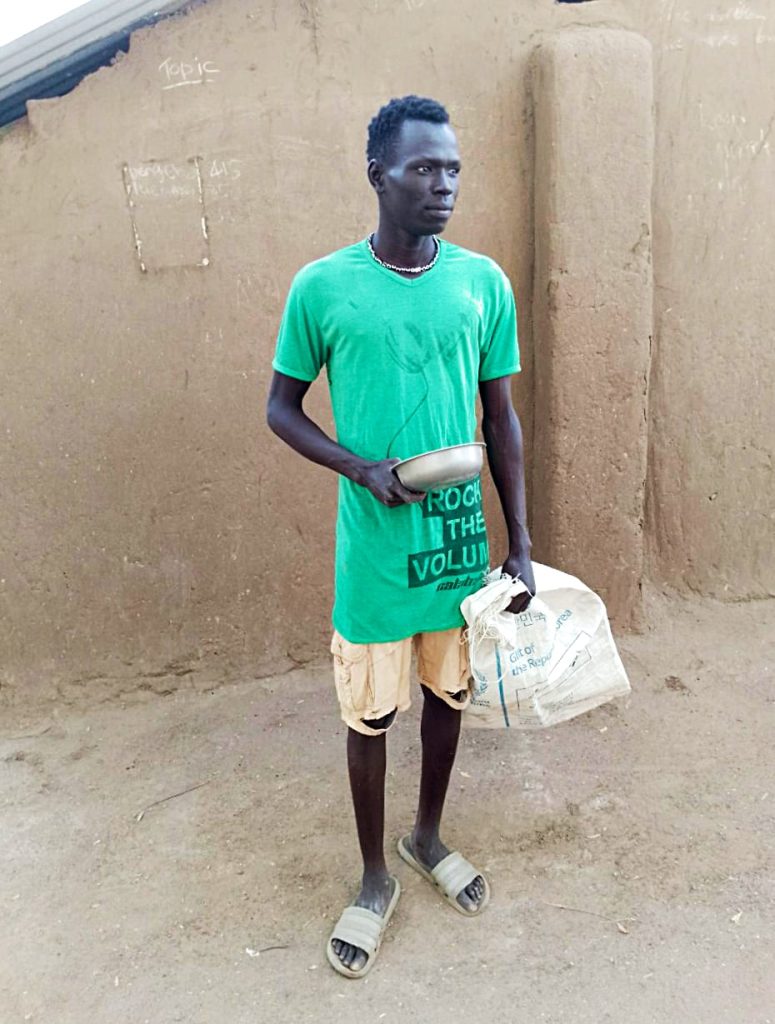A very short question that means a lot to young men and women here in Kakuma.
A lot of people have chosen to live humble lives here, in the refugee camp. Myself included.
This question can do many things to a human being’s life. It can make you rich or poor. It can teach you to be merciful or merciless, to love or to hate, to do godly or to do evil. It can also make a man or woman swallow his or her ego. It happened to me, and that is why I am writing this story.
“Unauza?” means “Are you selling?” in Swahili.
Every month, when food distribution starts, you can’t miss young men and women carrying sacks on their backs, and holding a metal plate. They do not beg but buy and resell. This is how it happens. You come with any amount of money you have (not less than Ksh.100). You then you ask anyone who is coming out of the food distribution point if they are selling anything. If they are, you then follow them to their comfort zone where you can buy whatever you wanted to buy – yellow peas, sorghum, maize or oil.

The plate measures always 1kg and its price depends on the amount of food distributed. The profit is a result of how the seller measures the plate, so the chances of making a profit or loss are 50/50.
God knows the abuses that people receive from women and men who, I sometimes wonder, if they really have the sense of humanity in them. We were abused with all thoughts of inhumane words but because we needed money to cater for our secondary needs that UN could not provide, we learned to politely reply with the words “malesh mama” or “pole mama” or “sorry mama”.
You may wonder why this word – “mama”. This is why. Where I come from, for a male child to call his mother “mama” and not by her name is a taboo. Hardship taught us that even money cannot buy respect or honour, a small word “mama” can make someone get treated as if they were just born of that woman he has called so. So we took an oath – if we someday go back home, never shall we call our mothers by their names.
Nowhere you can find that out of five of us in a compound four vow never to call the moms by their names, and as much as some of us are showing positive changes some of us have lost the respect for humanity, because of the way they have been treated at unauza party.
I have learnt from this not the hardship or the unfairness of humanity, but that even a small thing can make a great change in our life. Unauza? Is a small question but it gave many youths a reason to think of other ways to maintain life in a state of killing and stealing from people for survival. So, how much can meaningful job opportunities, especially for the youths’ in third world countries, change their negative ways of thinking about survival in their countries?